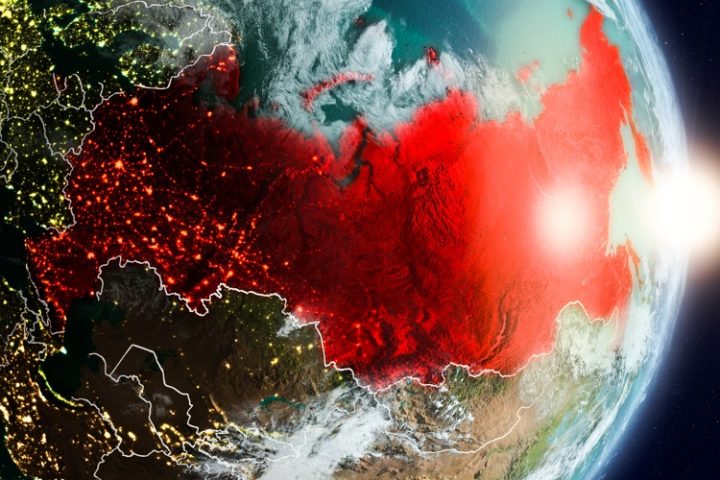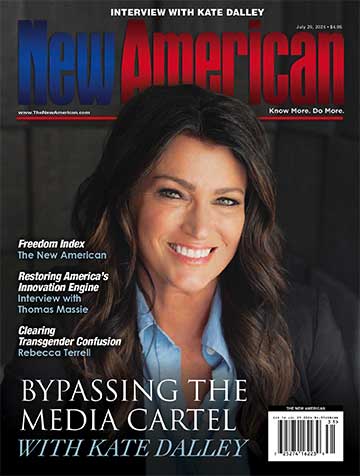
Leading voices among Russia’s intellectual elite are calling on Moscow to make a sharp pivot from the West to the East. What would such a shift mean for the future of Russia and the world at large?
In an op-ed at Russia Today, Professor Sergey Karaganov, who serves as honorary chairman of Russia’s Council on Foreign and Defense Policy and is also an academic supervisor at the School of International Economics and Foreign Affairs Higher School of Economics (HSE) in Moscow, argues in favor of massive investment in Siberia in order to more closely align Russia with Asia.
In his article, titled “Here’s why Russia must permanently abandon Europe and turn fully to Asia,” Karaganov makes the case that Europe is in decline while Asia is on the rise.
In light of this, the best bet for Russia, according to the academic, is for Moscow to heavily develop Siberia — including by building infrastructure, encouraging mass migration to the region from other areas of Russia, and creating transportation networks such as railways to more closely connect Russia to neighboring Asian countries.
Karaganov summarized his experiences at the conclusion of the 2000s of advancing such arguments along with colleagues. At the time, Russian policymakers adopted some of these views, but emphasized instead the Pacific Far East and the Arctic. Now he urges the nation’s leaders to return to the original idea of making Siberia central to Russia’s future.
As Karaganov writes:
Now, the new geostrategic situation urgently requires a return to the original idea — the eastward turn of all of Russia through the primary development of all of Siberia, including, of course, the Urals. In other words, we are talking about the “Siberization” of the whole country. Western Europe will be closed for many years and should never again become a first-class partner, while Asia is developing rapidly.
The confrontation unleashed by the West, added to the processes of social disintegration taking place there, stimulated by the elites, and the long-term slowdown in the development of Western Europe, clearly show that Russia’s future lies in the East, in the South, where the center of the world is shifting.
And Russia, with its unique culture and openness, is called to become an important part of this transformation, and to be one of its leaders. Indeed, to become what fate, God, and the deeds of generations of our ancestors have predestined it to be — Northern Eurasia. Its balancer, its military-strategic pivot, its guarantor of the renaissance of its previously oppressed cultures, countries and civilizations, free from dictates.
The professor contends that Siberia has historically been at the heart of Russia’s greatness, pointing to its resources (silver, gold, oil, and gas) and the caliber of its people. He also touts the region’s diversity of nationalities and ethnicities, declaring that it should serve as a model for the racially and religiously diverse international empire he believes Russia is destined to become.
In calling on Russia to educate the public about Siberia’s history and encourage pride in it, Karaganov also compares the region to the American West. He calls the latter “a pale shadow of the series of exploits of our ancestors. At the same time, [Russians] did not resort to genocide, but intermarried with the natives. And we, the masses of people and even intellectuals, are almost ignorant of this history.”
Karaganov’s recommendations include “new meridional routes should be built, connecting southern Siberia with the Northern Sea Route, leading to China and through it to Southeast Asia”; the development of Siberian water resources; and continued development of “the railway that will link Russia, including the Siberian regions, to the Indian Ocean via Iran.”
But is Karaganov overstating Russia’s “Asiannness”? While the nation undoubtedly has influence from the Orient and historically had abundant interactions with Asia given its geography, the notion that Russians are Asian and not European goes against genetics, history, culture, and common sense — and is more the result of pushing the antiquated Cold War-era division of East and West from being Western Europe and Eastern Europe to being Europe and Asia.
If intellectuals such as Karaganov get their way, will Russia’s attempts to sync with the Muslim and East Asian worlds result in a dilution of the very things that make it unique and great?
For example, one of Karaganov’s proposals is to expand Asian migration to Russia. As he says in his own words:
“The wider shortage of labor should be partly compensated by the mass attraction of hard-working and disciplined North Koreans. We are finally getting out of foolishly following the Western line on the DPRK and restoring friendly relations. I know that India and Pakistan are interested in providing at least seasonal workers.”
Later on in his op-ed, Karaganov calls not only for teaching Oriental languages in Russia, but for developing foreign religions such as Islam and Buddhism and putting them on the same level as the Russian Orthodox Church, which is a key part of Russia’s character and heritage.
He writes:
Sun Tzu, Confucius, Kautilya (or Vishnugupta), Rabindranath Tagore, Ferdowsi, King Darius, Tamerlane, al-Khozremi (the founder of algebra), Abu Ali ibn Sina (Avicenna — the founder of medical science) or Fatima al-Fihri — the founder of the world’s first university — should be as familiar to an educated Russian as Alexander the Great, Galileo, Dante, Machiavelli or Goethe. We need to understand the essence not only of Orthodox Christianity, but also of Islam and Buddhism. All these religions and spiritual movements are already present in our spiritual memory. We just need to preserve and develop them.
In short, Karaganov and his colleagues are promoting Russian alignment with Asia because they believe it will allow the nation to succeed where Western Europe is ostensibly failing. But following Karaganov’s program may simply have the consequence of precipitating Russia down the same pitfalls — mass migration, multiculturalism, free trade, foreign military entanglements — that have harmed the West.




